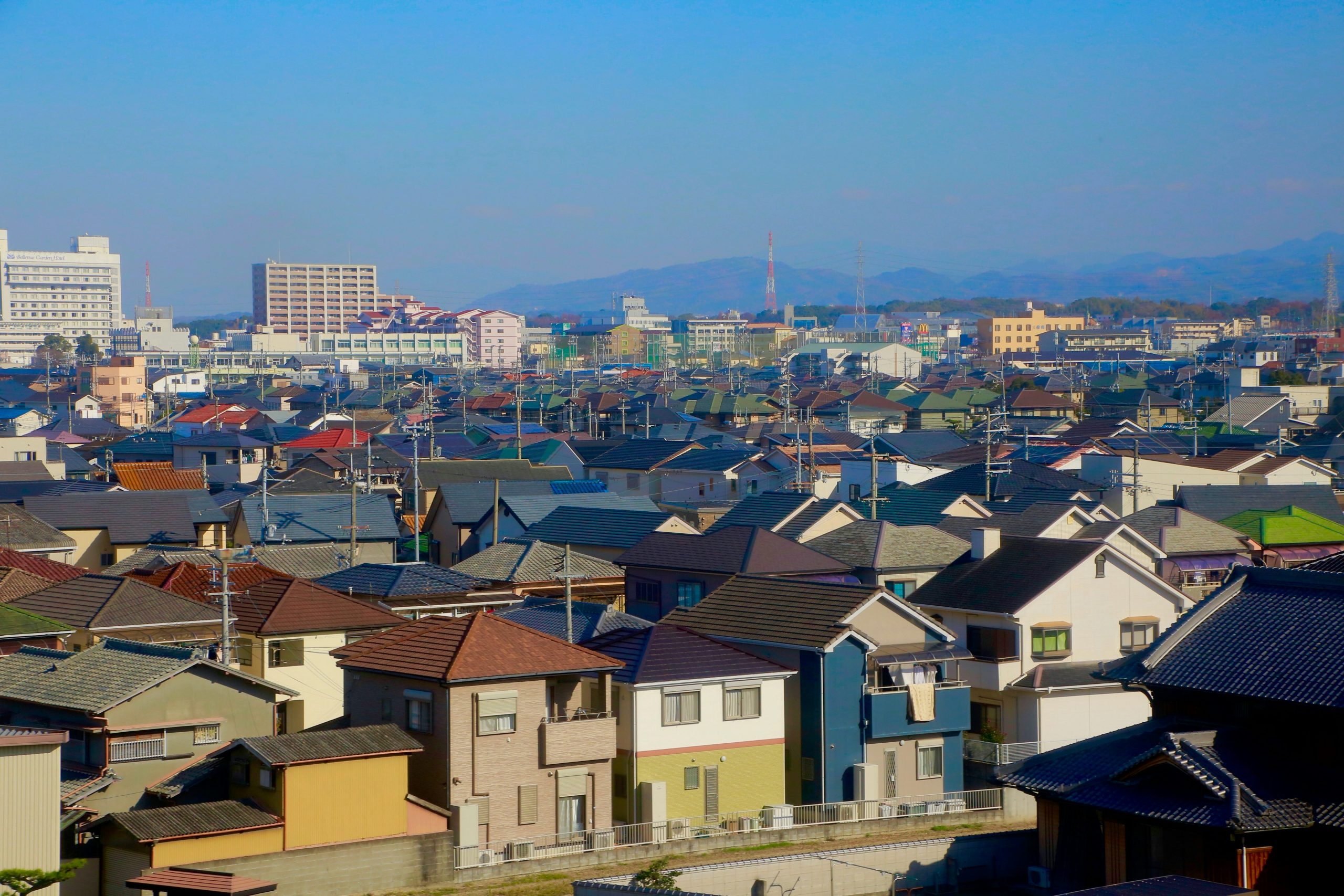Will Prices Really Fall If the Supply-Demand Balance Collapses?
The topic of a “real estate crash” often comes up and seems to be a popular subject. For property owners, it presents a risk, but for those without property, it could signal an opportunity. In that sense, it appeals to a broad audience. However, when and how would such a crash occur? Let’s take a closer look at the mechanisms behind it.
Comparing the Former Bubble to the Present
A representative example of a major crash is the real estate bubble that intensified in the late 1980s. Later, the period of rising real estate prices before the Lehman Brothers collapse (2008) was sometimes referred to as a “mini-bubble.” While current prices are even higher than that period, it can’t be called a bubble. This becomes clear when comparing the current situation to the bubble era.
During the 20th century, only two of the three valuation methods (cost approach, sales comparison approach, and income capitalization approach) were commonly used. The cost approach calculates the cost of land and buildings, often used for new condominiums and houses. The sales comparison approach is frequently used for appraising second-hand condominiums. With just these two methods, a bubble could easily form, as land prices could double in one year, driving up market prices proportionally. This could potentially lead to an infinite rise in prices.
Since the 21st century, with the establishment of J-REITs (Japan Real Estate Investment Trusts), the income capitalization approach has become the mainstream method. This approach is based on the idea that real estate prices are proportional to rental income and other forms of revenue. With this method, as long as the difference between yields and interest rates is appropriate, it can’t be considered a bubble.
For example, with a yield of 3% and an interest rate of 0.5%, the spread would be 2.5%, which is within a reasonable range. During the bubble, however, the yield was 2%, and the interest rate was 8%, resulting in a -6% spread.
The reason that investment interest didn’t wane despite negative profitability was that prices were rising at such a rapid pace. If a capital gain of 50% per year was expected, investors would ignore a negative spread. This was like a high-risk gamble based on expected capital gains with no guarantee, which is why it was naturally called a “bubble.”
Next, let’s understand what happened when real estate prices started to fall. The collapse of the bubble was artificially induced. It began when the Ministry of Finance introduced a “total volume control” that limited lending to the real estate industry. Since no one would stop borrowing in anticipation of higher real estate prices, lending was restricted.
As the amount of funding available to real estate businesses became relatively large compared to the volume of properties on the market, prices naturally rose. However, with the total volume control limiting funds, prices began to fall. Real estate companies, who had borrowed money to purchase properties in expectation of price increases, found themselves with insufficient collateral and faced bankruptcy. As a result, many real estate companies eventually went bankrupt.
What Happened After the Lehman Brothers Collapse
Another downturn occurred after the Lehman Brothers collapse. This time, the issue stemmed from defaults on subprime mortgages in the United States, which were high-risk loans aimed at low-income borrowers. While Japan did not have such risky housing loans, financial institutions simultaneously pulled back their lending to real estate and housing sectors. It was said that around 30-40% of new condominium developers in the Tokyo metropolitan area went bankrupt.
As a result, properties under construction were sold at low prices to financially stronger companies, leading to a temporary price drop. New condominiums sold by corporations dropped by about 20%, and second-hand properties sold by individuals saw a 10% decrease. However, the prices stabilized within a year and almost returned to their original levels a year later. This was what happened during the collapse of the mini-bubble. The drop in prices was surprisingly small and could not be considered a major crash.
When real estate prices fall, tightening of financial conditions becomes essential. Real estate developers cannot simply reduce their operations on their own. Banks, needing to lend under financial easing, cannot avoid lending to real estate developers. As a result, the only entity that can implement tightening is the Financial Services Agency, and when that happens, the “expectation of higher prices” will suddenly shift to “expectation of lower prices.”
Will a “Real Estate Crash” Happen Due to a Collapse in the Supply-Demand Balance?
Next, let’s focus on the arguments of those who advocate for a major real estate crash. Their claim is that the collapse of the “supply-demand balance” will lead to falling prices. However, in the past, there has never been a significant price decline in Japan solely due to a supply-demand imbalance. The two previous bubble collapses were caused by a lack of funds flowing, not by supply-demand issues. Particularly, there are other reasons why housing prices are unlikely to fall.
Let’s start with private homeownership. It’s impossible for someone who bought a condominium for 100 million yen to immediately sell it at a loss for 90 million yen. Even if demand sharply drops and they need to lower prices to find a buyer, if 90 million yen doesn’t cover the full mortgage repayment, the bank that issued the loan won’t allow the property to be sold, and the transaction will fail. This is why banks have their mortgages recorded on the property registry.
In particular, behind the interest rate competition between banks, the full loan ratio has risen to 60%. A full loan means that the purchase price and the loan amount are the same. Even if the remaining mortgage balance is 95 million yen, the property cannot be sold unless the sale price exceeds that amount to pay off the loan.
In reality, during the Great East Japan Earthquake, when the bay area suffered from liquefaction, there were almost no buyers. What happened at that time was that the transaction prices remained the same, but the number of deals decreased by 70%. Unless a company goes bankrupt, transaction prices cannot be easily reduced.
A similar situation occurs with real estate companies. If the land they acquired cannot be sold for a lower price, they would prefer not to sell it at all. Most of the companies that lacked financial strength went bankrupt after the Lehman Brothers collapse, and the remaining companies have strong financial foundations, often due to low-interest loans. Many companies would rather extend the selling period than sell at a lower price. In other words, for a major real estate crash to occur, individuals with homeownership must go bankrupt, and developers must collapse.
It’s better to consult with the financial institution before you are unable to make repayments.
Let’s add one more reason why prices won’t fall. On the Financial Services Agency’s website, there is a document titled “Regarding the Situation of Changes in Loan Terms.” This refers to temporarily adjusting the repayment terms of loans for small and medium-sized enterprises facing difficulty in repaying their current loans, based on the borrower’s situation. It includes rescheduling payments, relief, and forgiveness. Since the COVID-19 pandemic, 98.8% of more than 1.75 million requests have been responded to.
In other words, if you consult with a financial institution before you are unable to make repayments, almost all of them will cooperate. Similarly, 96.3% of about 100,000 applications for housing loans have been accepted. This practice is a remnant of the so-called “Moratorium Law” (officially the “Small and Medium-sized Enterprise Financial Facilitation Act”), which was enacted after the 1998 financial big bang. At that time, due to the handling of non-performing loans and the bankruptcy of Yamaichi Securities and Hokkaido Takushoku Bank, the number of suicides increased by 8,472 to a total of 32,863, after banks tightened lending.
In Japan, real estate prices have never experienced a major crash due to supply and demand imbalances, and it is unlikely to happen in the future. If it were to happen, it would only occur when the Financial Services Agency imposes restrictions on real estate businesses. If you can predict when the Financial Services Agency will take action, you could escape (or sell) before prices start to decline.
Rather than worrying about a baseless “wolf boy” scenario that can’t be predicted, we believe it’s better for mental health to continue watching clear triggers with a defined cause-and-effect relationship.

For additional information or any questions please contact us here
Email: info@remax-apex.com

